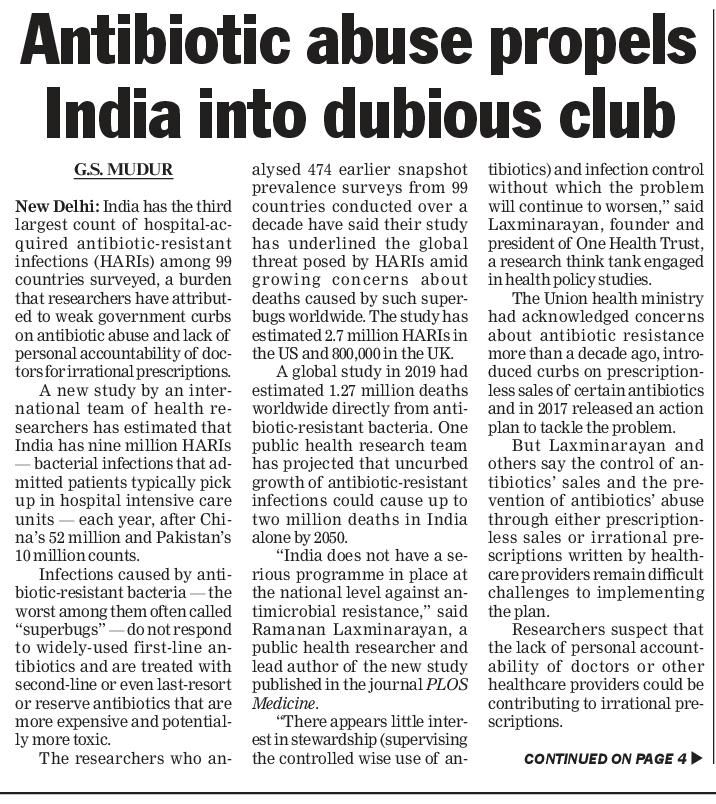Antibiotic abuse propels India into dubious club
G.S. MUDUR New Delhi: India has the third largest count of hospital-acquired antibiotic-resistant infections (HARIs) among 99 countries surveyed, a burden that researchers have attributed to weak government curbs on antibiotic abuse and lack of personal accountability of doctors for irrational prescriptions
A new study by an international team of health researchers has estimated that India has nine million HARIs -- bacterial infections that admitted patients typically pick up in hospital intensive care units -- each year, after China s 52 million and Pakistan s 10 million counts
Infections caused by antibiotic-resistant bacteria -- the worst among them often called "superbugs" -- do not respond to widely-used first-line antibiotics and are treated with second-line or even last-resort or reserve antibiotics that are more expensive and potentially more toxic
The researchers who an- alysed 474 earlier snapshot prevalence surveys from 99 countries conducted over a decade have said their study has underlined the global threat posed by HARIs amid growing concerns about deaths caused by such superbugs worldwide. The study has estimated 2.7 million HARIs in the US and 800,000 in the UK
A global study in 2019 had estimated 1.27 million deaths worldwide directly from antibiotic-resistant bacteria. One public health research team has projected that uncurbed growth of antibiotic-resistant infections could cause up to two million deaths in India alone by 2050
"India does not have a serious programme in place at the national level against antimicrobial resistance," said Ramanan Laxminarayan, a public health researcher and lead author of the new study published in the journal PLOS Medicine
"There appears little interest in stewardship (supervising the controlled wise use of an- tibiotics) and infection control without which the problem will continue to worsen," said Laxminarayan, founder and president of One Health Trust, a research think tank engaged in health policy studies
The Union health ministry had acknowledged concerns about antibiotic resistance more than a decade ago, introduced curbs on prescriptionless sales of certain antibiotics and in 2017 released an action plan to tackle the problem
But Laxminarayan and others say the control of antibiotics sales and the prevention of antibiotics abuse through either prescriptionless sales or irrational prescriptions written by healthcare providers remain difficult challenges to implementing the plan
Researchers suspect that the lack of personal accountability of doctors or other healthcare providers could be contributing to irrational prescriptions
CONTINUED ON PAGE 4
